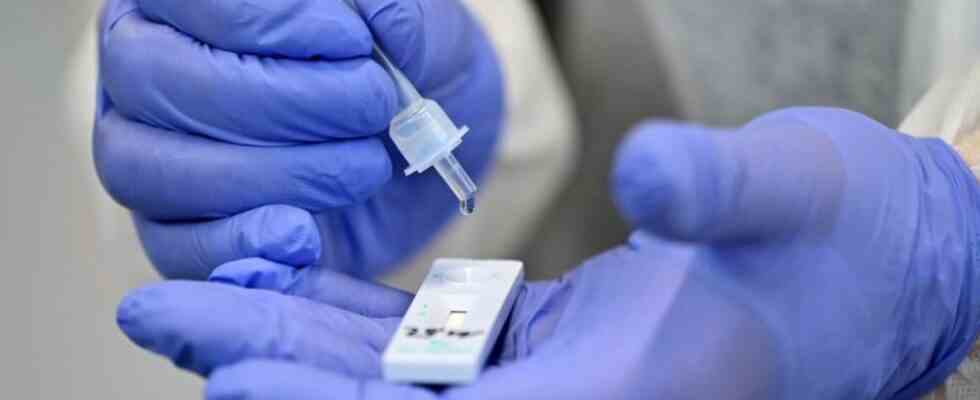corona pandemic
RKI: The course of the pandemic depends on a sense of responsibility
The federal and state governments are struggling to determine the future course of the pandemic. Photo: Martin Schutt/dpa-Zentralbild/dpa
© dpa-infocom GmbH
While the federal and state governments are struggling over the future course of the pandemic, the Robert Koch Institute is looking at the developments. Also targeted is the omicron subtype BA.2.
In view of the recent increase in the number of infections in Germany, the Robert Koch Institute (RKI) continues to believe that people’s sense of responsibility and contact behavior are groundbreaking.
“The further course of the pandemic depends on whether larger parts of the population continue to behave responsibly or to what extent possible infection-related contacts increase,” says the Corona weekly report of the RKI on Thursday evening.
“There is still a very high infection pressure in the population,” write the experts in the report. Accordingly, the seven-day incidences have risen again in all age groups, particularly in children, adolescents and young adults. The number of doctor visits in Germany because of Corona in the past week has increased again in all age groups with the exception of 0 to 4 year olds.
An increase in the serious course of the disease particularly affects the 80+ age group. In addition, the experts refer to the significant increase in the number of laboratory tests carried out in the past week. However, further test capacities are still available.
Omicron subtype BA.2
The even more easily transmitted omicron subtype BA.2 is therefore still on the rise in Germany and is now responsible for a large number of infections. By the end of the first week of March, the proportion of BA.2 in a sample had risen to about 62 percent, according to the report. In the week before, the value was still around 50 percent.
The experts write that the easier transferability of BA.2, the withdrawal of contact-reducing measures and a change in the behavior of the population are presumably the reason why the number of transmitted infections has increased significantly again in the last week. Specifically, the nationwide seven-day incidence increased by 22 percent in the week to March 13 compared to the previous week, and in all federal states with the exception of Berlin, the number of cases increased, in some cases significantly.
The corona spread had a high of 294,931 reported new infections within 24 hours on Thursday. The seven-day incidence had risen to a record of 1,651.4 new infections per 100,000 inhabitants in seven days, and 278 people had died with Corona within one day.
Against the background of ever new highs in corona infections, the federal and state governments are now struggling over the future corona timetable. According to the traffic light government’s plan, most nationwide protective measures should expire on Saturday. A much narrower basic protection should remain. The countries have a transition period until April 2nd. By then at the latest, further corona requirements should only be possible in hotspots after a resolution in the state parliament.
In its report, in view of the increasing number of cases of Covid-19 infections and other acute respiratory infections, the RKI reiterates its recommendations to further reduce contacts if possible and to wear masks, especially indoors, and repeats its vaccination appeals. If you have symptoms such as a runny nose, sore throat or cough, you should stay at home regardless of your vaccination status in order to avoid contagion in the area, the authority warned via Twitter.

